Equality betrayed: Commission unilaterally gives up on anti-discrimination law
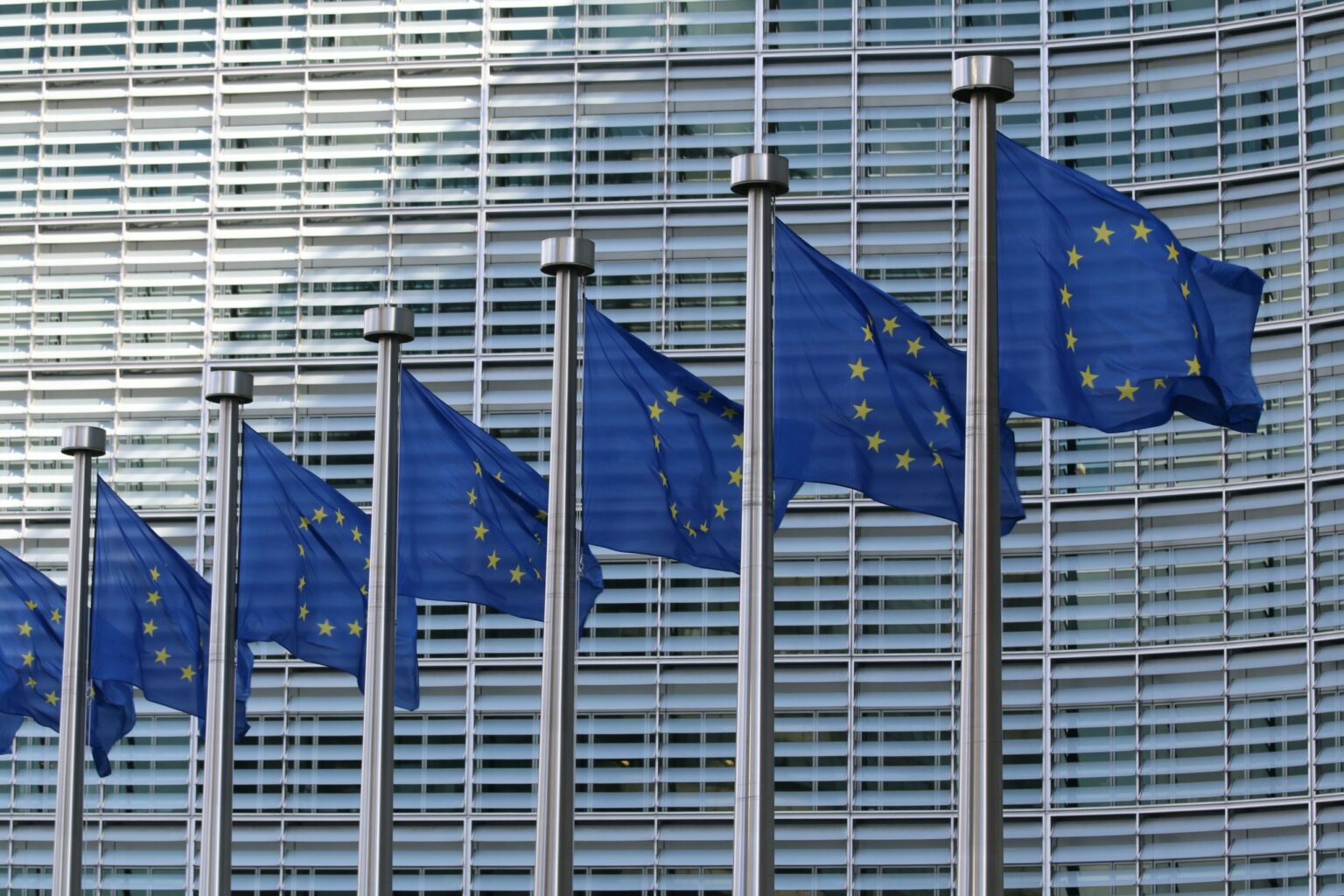
European Civil Society condemns the European Commission’s announcement to withdraw the proposed Directive on anti-discrimination as a betrayal of fundamental rights at a critical moment for democracy and equality in the EU.
On 12 February, the Commission publicly announced its intention to withdraw the proposal for the Equal Treatment Directive. This legislative measure aims to close legal gaps in EU anti-discrimination law. The EU Charter of Fundamental Rights and EU Treaties prohibit discrimination based on gender, racial or ethnic origin, religion or belief, disability, age, and sexual orientation. However, existing EU anti-discrimination legislation results in a hierarchy of protection where some forms of discrimination are more comprehensively addressed than others. The Equal Treatment Directive sought to harmonise these protections, ensuring a horizontal approach to equality.
This week’s decision severely undermines the EU’s commitment to building a Union of Equality at a time when marginalised communities require greater protection than ever. The withdrawal of the proposed Directive leaves a glaring gap in EU law, failing to protect young people, older persons, LGBTIQ+ persons, persons with disabilities or those facing discrimination based on religion or belief when accessing goods and services, housing, healthcare, social protection or education. It also does not sufficiently protect individuals who experience discrimination on the basis of race or ethnic origin and sex/gender in combination with these grounds.
The Commission’s intention to withdraw it, without consulting with civil society and without presenting any alternative plan on how to better ensure comprehensive protection against discrimination outside the labour market in the EU, sends the wrong political message.
Furthermore, this withdrawal goes against EU’s fundamental values enshrined in its treaties and disregards the support of the European Parliament, civil society, Equality Bodies and international organisations. It is also at odds with the European Commission’s repeated commitment to building a “Union of Equality” and undermines the Polish Presidency’s priorities.
Scrapping this directive without introducing a stronger and more comprehensive alternative at such a critical time when discrimination and rights violations are on the rise undermines the EU’s credibility as a global leader in human rights. It sends a clear message that those living in the EU will not be shielded from the worldwide backlash against equality, democracy and fundamental rights. It is not enough for the Commission to reverse its course. Member States must also step up and finally agree on an ambitious law that fights discrimination.
It is especially concerning that while the far-right is on the rise everywhere in Europe, the Commission chooses to sacrifice the human rights of citizens in what appears as a dangerous political gamble. In times of hatred and fear-mongering, we need more human rights protection, not less.
For this reason, we urge the European Commission to:
- Reconsider its intention to withdraw the Equal Treatment Directive;
- If the withdrawal proceeds, immediately propose a more robust and comprehensive legislative proposal that takes an intersectional approach, along with a clear timeline;
- Immediately engage in meaningful consultation with the European Parliament, civil society, Equality Bodies and EU citizens to determine the necessary action to achieve true equality;
- Make an unequivocal commitment to making the Union of Equality a reality for all of us.
We also call on:
- The Polish Presidency to hold an urgent and public Council meeting for the Commission to explain this decision
- The European Parliament to hold a public hearing with the European Commission on the decision and future steps to ensure protection against discrimination for all people living in the EU
Signatories:
Eurocentralasian Lesbian* Community (EL*C)
European Roma Grassroots Organisations Network (ERGO Network)
Organisation Intersex International Europe e.V. (OII Europe)
The International LGBTQI Youth & Student Organisation (IGLYO)
European Network against Racism (ENAR)
ILGA-Europe
European Disability Forum (EDF)
AGE Platform Europe (AGE)
Trans Europe and Central Asia (TGEU)
Did you know that acceptance of LGBTI people is stronger than ever across the EU?
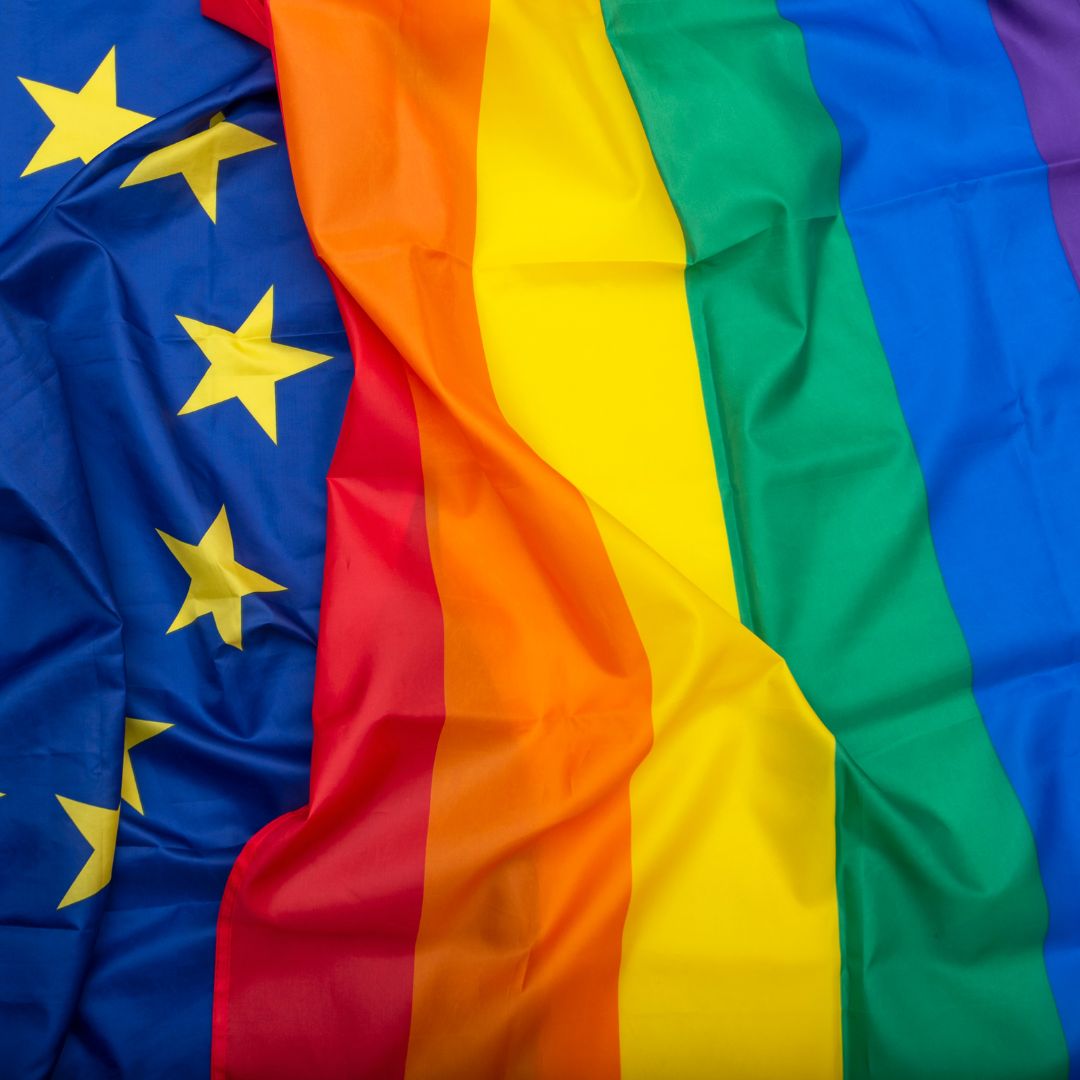
Despite hateful campaigns and attacks on LGBTI rights, more and more people across the EU agree that LGBTI people deserve equal rights and a life free from discrimination, according to a new report.
Published last month, the latest Eurobarometer report, charting public opinion in the European Union, shows acceptance of LGBTI people is clearly on the rise across all EU countries. The claim of some governments that they represent the will of the majority of their people when discriminating against LGBTI people, does not hold against the findings.
The report also clearly shows that acceptance is significantly higher amongst people who know someone from the LGBTI community personally, counteracting the characterisation of LGBTI people as an abstract threat by some leaders. Being friends with LGBTI people has a large impact on responses to the survey questions.
The results, however, reflect clearly that ongoing attacks on LGBTI rights have had an impact. The report has found that more than half of the general public say there is widespread discrimination in their country on the basis of gender identity (being transgender, 57%) or sexual orientation (54%). Discrimination against intersex people is in the high numbers too, at 47%. Published last month, the report finds that the highest levels of perceived discrimination are on the basis of being Roma (65%), of skin colour (61%,), and of ethnic origin (60%).
The Eurobarometer survey is carried out every four years, with the last report published in 2019. Public perception of discrimination against trans people has grown by nine percentage points (pp’s) since then, while against intersex people, it is up by eight pp’s. Sexual orientation is up just one pp, however the fact remains that over half of respondents think discrimination on the basis of sexual orientation is widespread.
However, at the same time, a rising number of 69% of EU citizens say that lesbian, gay and bisexual people should have the same rights as heterosexual people, and 64% say that trans people should have the same rights as everyone else.
When it comes to legal gender recognition, 62% believe that trans people should be able to change their civil documents to match their gender identity. Further, 47% believe that official documents should offer a third option (X or O) for those who do not identify as female or male. Notably, for both of these questions, the percent of respondents agreeing increased (3 pp’s and 1 pp, respectively), but the number disagreeing also increased (2 pp’s and 4 pp’s, respectively). This may indicate that there is increased awareness of the issue in the EU, as in both cases, the number of respondents saying that they did not know decreased by 5 pp’s.
Increasing support also for same-sex marriage
72% of respondents say that same sex marriage should be allowed throughout Europe; up three pp’s since 2019. In Hungary and Poland, which have seen much anti-LGBTI rhetoric since the last Eurobarometer report, 42% and 50% of respondents agree with same sex marriage, respectively, showing the resilience of the public’s perspective even in the face of intense political anti-LGBTI pressure. The notable exceptions here are Bulgaria and Romania. Just 17% of Bulgarians agree with same sex marriage and 25% of Romanians.
Support for inclusive education
Most respondents think school lessons and material should include information about sexual orientation (71%) and the existence of multiple gender identities (68%). In 2019, 71% also said that sexual orientation should be included in curricula; so despite the heavy public attacks on inclusive education, support is stable.
In Hungary, the numbers of people agreeing with the inclusion of sexual orientation and gender identities (SOGI) in education have even gone up. There’s an increase of two pp’s in those who agree with inclusion of sexual orientation and a striking eight pp’s in those who agree with education on multiple gender identities.
Levels of comfort
The Eurobarometer survey asks respondents about their levels of comfort with LGBTI people in their lives, including with relationships their adult children are in, as colleagues, and in the highest elected positions.
The numbers in this regard are high. 59% of European citizens, for instance, would be totally comfortable if one of their children was in a love relationship with someone of the same sex, while 48% would be comfortable if their offspring were in love relationships with trans or intersex persons (the Eurobarometer survey puts both trans and intersex together in this series of questions). Lesbian, gay and/or bisexual government leaders would be “totally comfortable” for 68% of respondents (up 4 pp from 2019), while 58% would be happy to have a trans or intersex person in the highest elected position.
A clear message
The overall findings of this Eurobarometer survey are that despite a surge over the past few years in anti-LGBTI hate speech and violence, and negative media reporting particularly in relation to trans people, most Europeans are far more accepting of lesbian, gay, bisexual, transgender and intersex people than it would appear on the surface, and that governments who are introducing legislation that discriminates against LGBTI people are not in accordance with the will of the citizens of their countries. As a measure of attitudes in the EU, it shows that governments should be introducing more protections, while making sure that legislation already in place is fully implemented.
The Frontline: The World Cup Rainbow Divide
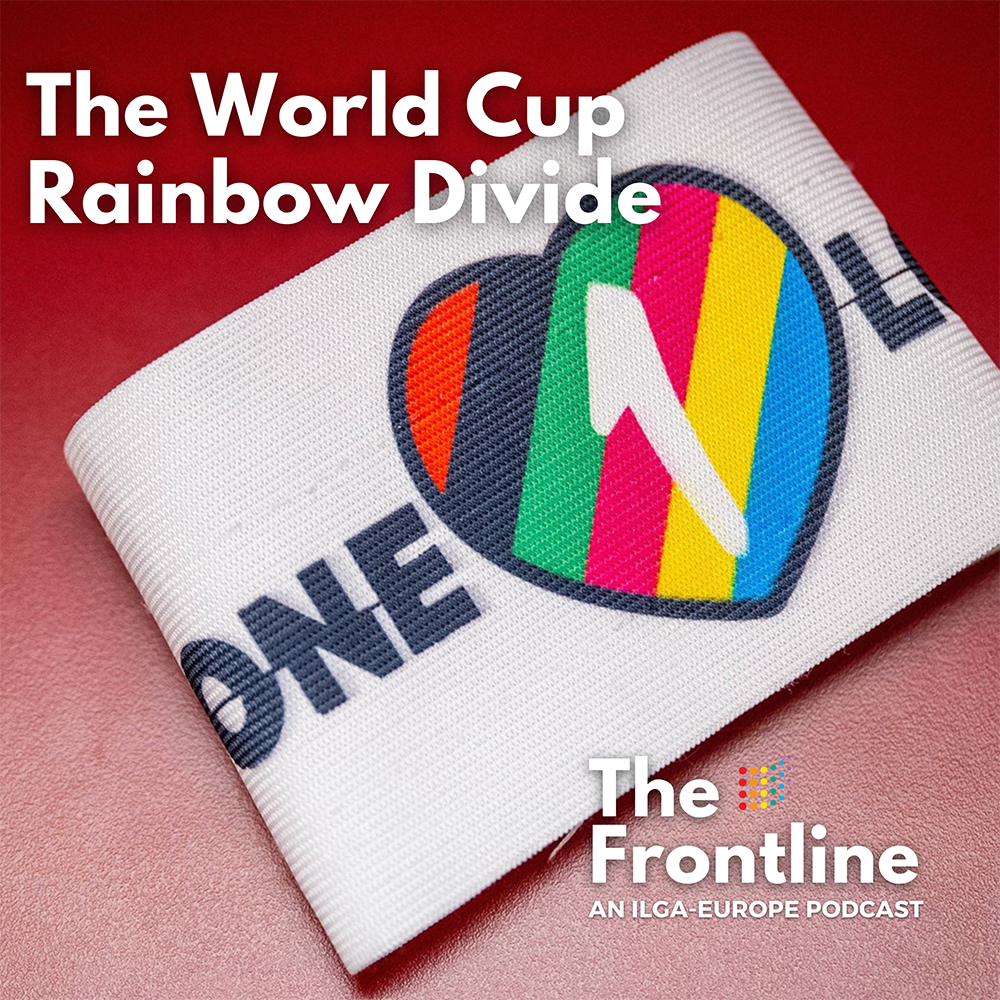
The big story at the beginning of the World Cup 2022 centred on FIFA banning all players on European teams from wearing the ‘One Love’ armband during matches, highlighting the human rights situation for LGBTI people in Qatar.
But what happens when diverging opinions on LGBTI issues become the leading stories surrounding a major sporting event like the World Cup? Do these stories serve the LGBTI communities in countries where people are at risk? Do they serve the greater goals of the LGBTI movement for equality? Or is the focus on LGBTI people and LGBTI issues not creating a Rainbow Divide, in which the human rights of one group are separated from the human rights of all?
This episode of The Frontline will explore the complexities around singling out of LGBTI rights at the Qatar World Cup, when so many other human rights abuses are taking place in the country, if it further fuelled an ‘us and them’ human rights narrative, and what responsibility lies with the media in the reporting of this and other LGBTI centred stories.
Our guests are Ryan Heath, Editorial Director with Politico; Gurchaten Sandhu, Director of Programmes at ILGA World, and the Executive Director of ILGA-Europe, Evelyne Paradis.
Listen to the episode below or follow this link to find it on your favourite podcast platform.
#BiVisibilityDay 2022: Discrimination and bi people at the intersections
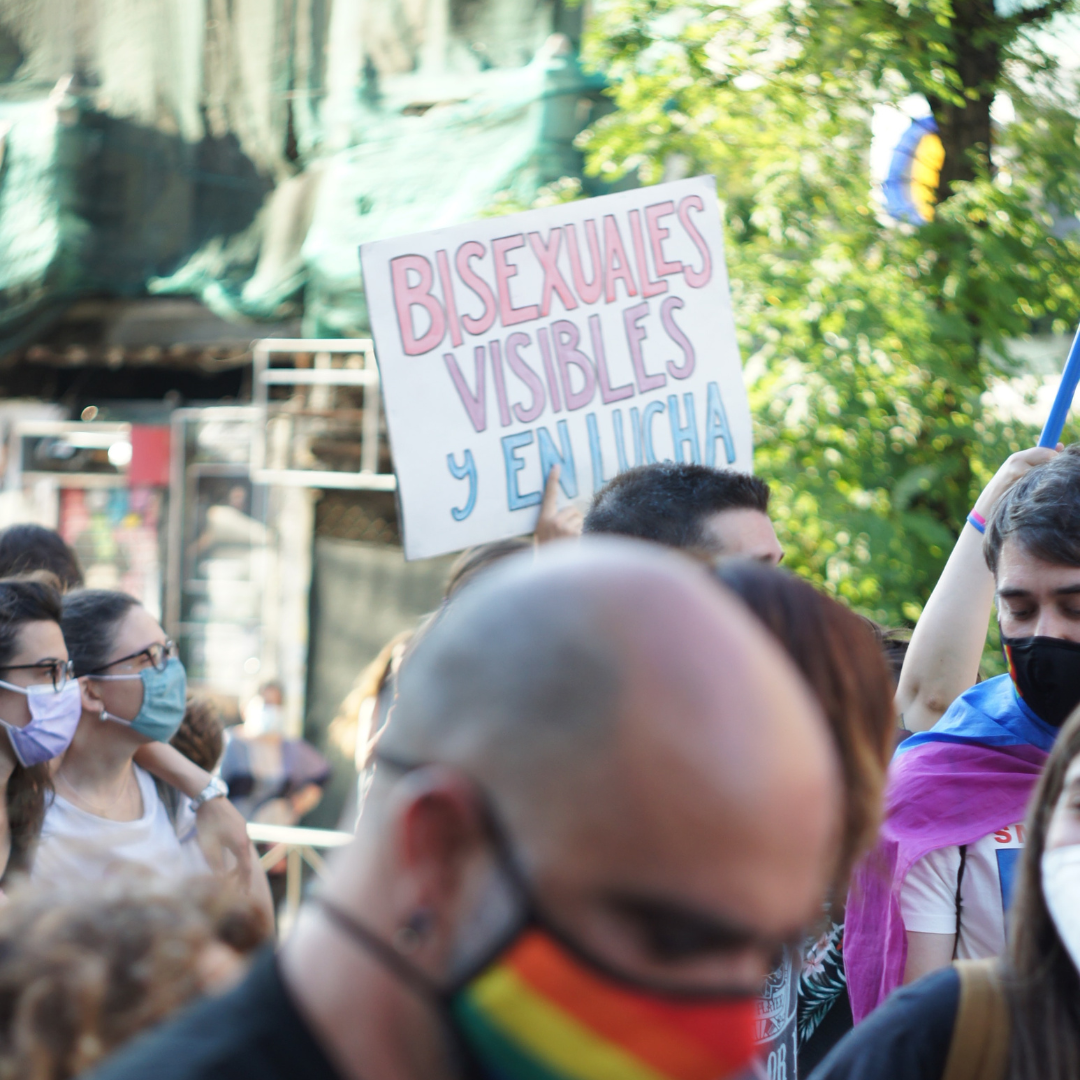
In our analysis of the data from the largest LGBTI survey carried in Europe, we’ve found that bi people, particularly those with intersecting identities, experience discrimination in large numbers.
It’s Bi Visibility Day, an opportunity to celebrate bi people, communities and history. However, while we celebrate, it can’t be ignored that bi people are still subject to unique discrimination rooted in damaging myths that have a damaging impact on individual lives, and particularly for those on the intersections. For bi people to enjoy full equality in our societies, we must acknowledge the discrimination they suffer, especially those who are also part of an ethnic minority, who are trans, or non-binary or who have a disability.
The 2019 EU Agency for Fundamental Rights (FRA) survey on LGBTI people in the EU and North Macedonia and Serbia found that bi people are exposed to discrimination at similar levels as other LGBTI people. With almost 140,000 participants, the FRA survey is the largest of its kind. It shows, for instance, that when looking for work or going to a shop, less bi respondents have experienced discrimination compared to LGBTI people overall, but at school bi people experience more discrimination than the average LGBTI person (20.26% of bi respondents versus 19.51% of LGBTI respondents).
However, it’s when it comes to bi people with intersecting identities that the biggest disparities are found. ILGA-Europe has drilled down into the FRA survey to analyse the experiences of bi people on the intersections. Here are some of the findings from our analysis.
The survey shows that while 19.22% of bi respondents experienced discrimination at work, this figure is over double for trans bi people of an ethnic minority, including migrant background, at 42.98%. The same goes for 27.32% of bi people with disabilities, 34.43% of trans bi people, 31.12% of non-binary bi people, and 25.62% of intersex bi people.
The bi experience of discrimination at work:
- Bi respondents overall: 19.22%
- Intersex bi people: 25.62%
- Bi people with disabilities: 27.32%
- Non-binary bi people: 31.12%
- Trans bi people: 34.43%
- Trans bi people of an ethnic minority*: 42.98%
Another stark example is health care or social services. While almost 15% of the overall bi respondent group experienced discrimination when accessing healthcare or social services, when it came to intersex bi people the figure was almost 50%. Meanwhile 43.56% of trans bi people of an ethnic minority and/or migrant background experienced similar discrimination, 34.86% of trans bi people, 29.77% of bi people with disabilities, 24.15% of non-binary bi people, and 17.79% of bi people of an ethnic minority.
Bi experience of discrimination when accessing health care or social services:
- Bi respondents overall: 14.72%
- Bi people of an ethnic minority: 17.79%
- Non-binary bi people: 24.15%
- Bi people with disabilities: 29.77%
- Trans bi people: 34.86%
- Trans bi people of an ethnic minority: 43.56%
- Intersex bi people: 43.72%
And that’s not all. Over 40% of respondents have felt discriminated when doing the following activities:
- 47.65% of bi trans female respondents have felt discriminated when looking for work.
- 42.98% of trans bi respondents of an ethnic minority have felt discriminated against at work.
- Between 40 and 44% of bi intersex, trans and trans respondents of an ethnic minority* have felt discriminated against when accessing healthcare or social services.
- Over 42% of bi trans male respondents and bi trans respondents of an ethnic minority have felt discriminated against at school.
- 40.36% of bi trans male respondents have felt discriminated against when showing their ID.
These figures are a stark reminder not only that bi people are often at risk of discrimination, but that this risk increases for certain members of the bi community.
ILGA-Europe will be publishing a full report based on our analysis for bi people from the FRA report later this year.
*Ethnic minority always includes migrant background
Sexual orientation is not a reason to terminate a contract with a self-employed worker, says Advocate General of the CJEU
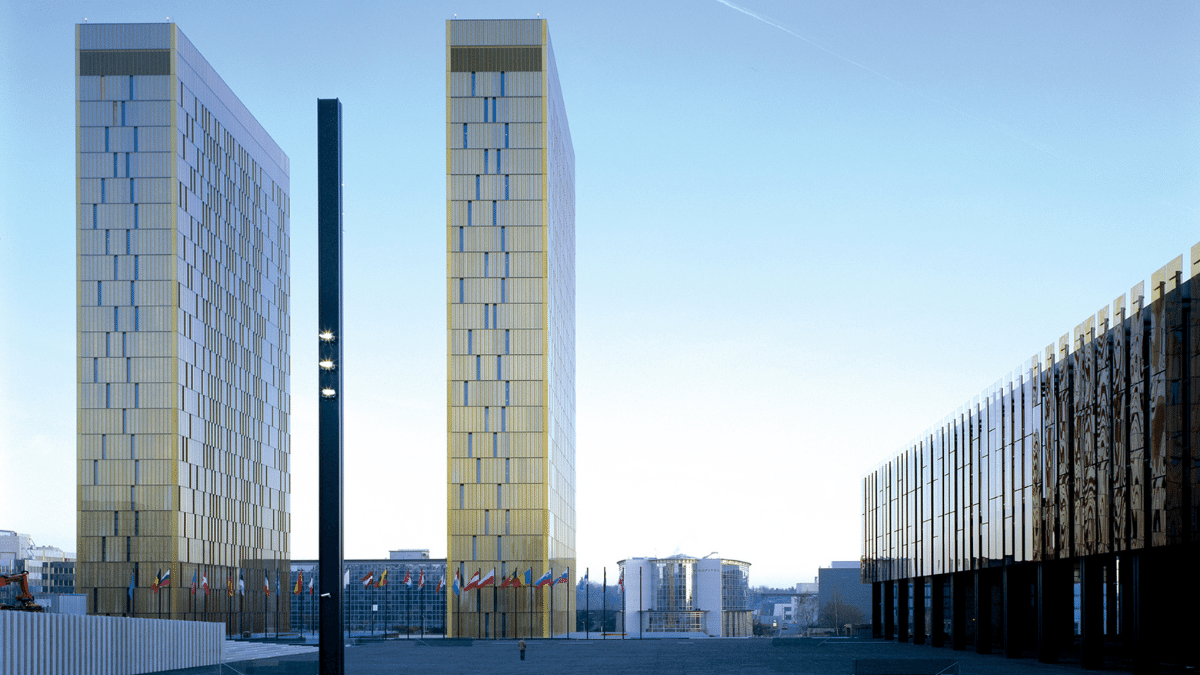
Today, the Advocate General of the CJEU has issued an opinion in the case of J.K. vs the Polish public broadcaster company TP, stating that discrimination based on sexual orientation in employment is not acceptable under EU law.
ILGA-Europe welcomes the Advocate General of the Court of Justice of the European Union’s (CJEU) opinion, published today in the case C-356/21, concerning the refusal to continue a contract of work with a self-employed person on the basis of that person’s sexual orientation violates EU law.
The applicant, J.K., is seeking compensation from the Polish public broadcaster TP for the breach of the principle of equal treatment on the grounds of sexual orientation in the form of direct discrimination in the context of the employment relationship between the two parties. J.K is openly a member of LGBTI community, and together with his partner, he engages in the activism for LGBTIQ+ rights, including running a popular YouTube Channel.
The Defendant is the Polish public broadcaster TP, a nationwide public TV network fully owned by the State Treasury. During 2010 – 2017, the employment relationship between the Applicant and the Defendant was based on regularly concluded, consecutive short-term contracts for specific work.
In December 2017, the Applicant and his partner released a Christmas video on their YouTube Channel, where they appeared among other members of the LGBTIQ+ community. Two days after the video was posted, the Applicant received an e-mail from his immediate supervisor cancelling his scheduled shifts. He was also informed that the Defendant was not planning to cooperate with the Applicant any longer. He was replaced by another employee, who had neither the qualifications nor the experience to perform the tasks previously performed by the Applicant.
In her opinion the Advocate General firstly confirmed that self-employment is covered under the Directive and by covering the area of ‘employment and occupation’, the “Directive aims at enabling citizens to realise their potential and earn their living by providing their work”. Furthermore, in addressing the issue concerning “conditions for access to self-employment”, the AG suggests that the Directive covers both initial stage of concluding a contract, but also the provision relating to the termination of contractual relationship. At all stages, discrimination based on sexual orientation is not acceptable.
According to Arpi Avetisyan, Head of Litigation with ILGA-Europe: “Advocate General Capeta’s opinion is a welcome confirmation that discrimination based on sexual orientation has no place under the EU Directive, including for self-employed workers. We hope the Court will follow the Advocate General’s opinion and build on it so that EU law in this area protects self-employed workers ensuring equal access to employment. Freedom to choose a contracting party does not imply freedom to discriminate.”
Polish public broadcaster TP in EU Court for Discrimination Against Self-employed LGBTI Person
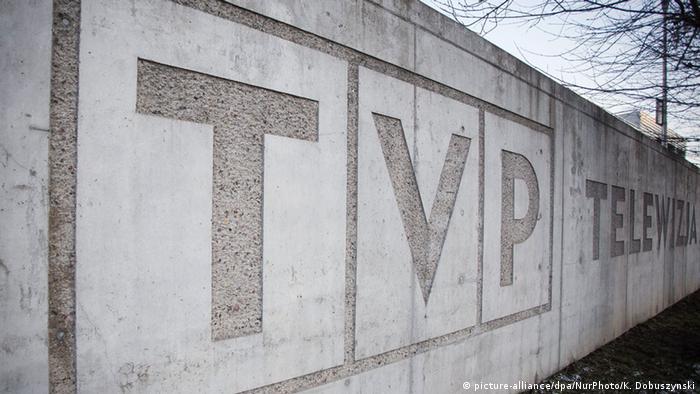
Today, the case of J.K. vs the Polish public broadcasting company TP, in which the applicant is seeking compensation for the discontinuation of his freelance contract after he appeared in a YouTube video with his same-sex partner, is being heard for the first time at the Court of Justice of the European Union.
Today, the CJEU is holding a preliminary hearing in the case C-356/21, to decide whether the refusal to continue a contract of work with a self-employed person on the basis of that person’s sexual orientation violates EU law.
In the case, the applicant, J.K., is seeking compensation from the Polish public broadcaster TP for the breach of the principle of equal treatment on the grounds of sexual orientation in the form of direct discrimination in the context of the employment relationship between the two parties.
The Applicant is openly a member of LGBTI community, and together with his partner, he engages in the activism for LGBTIQ+ rights, including by running a popular YouTube Channel.
The Defendant is the Polish public broadcaster, a nationwide public TV network which employs over 2 000 workers, fully owned by the State Treasury, intended to fulfil a public service mission. During 2010 – 2017, the employment relationship between the Applicant and the Defendant was based on regularly concluded, consecutive short-term contracts for specific work.
In December 2017, the Applicant and his partner released a Christmas video on their YouTube Channel, where they appeared among other members of the LGBTIQ+ community. Two days after the video was posted, the Applicant received an e-mail from his immediate supervisor cancelling his scheduled shifts. He was also informed that the Defendant was not planning to cooperate with the Applicant any longer. He was replaced by another employee, who had neither the qualifications nor the experience to perform the tasks previously performed by the Applicant.
Three Member States (Belgium, the Netherlands, and Portugal) and the European Commission, have filed written statements in support of the Applicant. All of them argue that the Member States may not exclude from the scope of Directive 2000/78 in their national law, the freedom of choice of the party to contract, to the extent that it is based on sexual orientation.
Poland, on the other hand, argues that the termination of contract and refusal to conclude a further contract with a self-employed person, even if based on that person’s sexual orientation, does not violate EU law.
According to Arpi Avetisyan, Head of Litigation with ILGA-Europe: “With this case, the CJEU has the opportunity to clarify the scope and practical applicability of the principal of non-discrimination based on sexual orientation, in the field of employment and occupation. This case could strengthen the standard and confirm that the fact that a person has been hired as a self-employed person is irrelevant for the purposes of protection from discrimination, both regarding access to employment and its termination.
“Otherwise, to allow limitation the scope of Directive 2000/78 would legitimise discriminatory choices of employers and contracting parties, and could encourage businesses to work more frequently with self-employed workers, as outside the framework of employment contracts, they would be free to discriminate.
“Any arguments of Poland in the present case are in fact contrary to the general principle of non-discrimination based on sexual orientation. Moreover, also under the Directive that self-employed persons would be less protected than other employees.”
LBTI women in sport: violence, discrimination, and lived experiences
In March 2021, a coalition of European networks working on LGBTI rights and including ILGA-Europe, EL*C, TGEU, OII Europe and EGLSF submitted to the Parliamentary Assembly of the Council of Europe a briefing note on violence and discrimination against LBTI women in sport.
With today’s infringements the EU has clarified that member states can no longer act against human rights with impunity
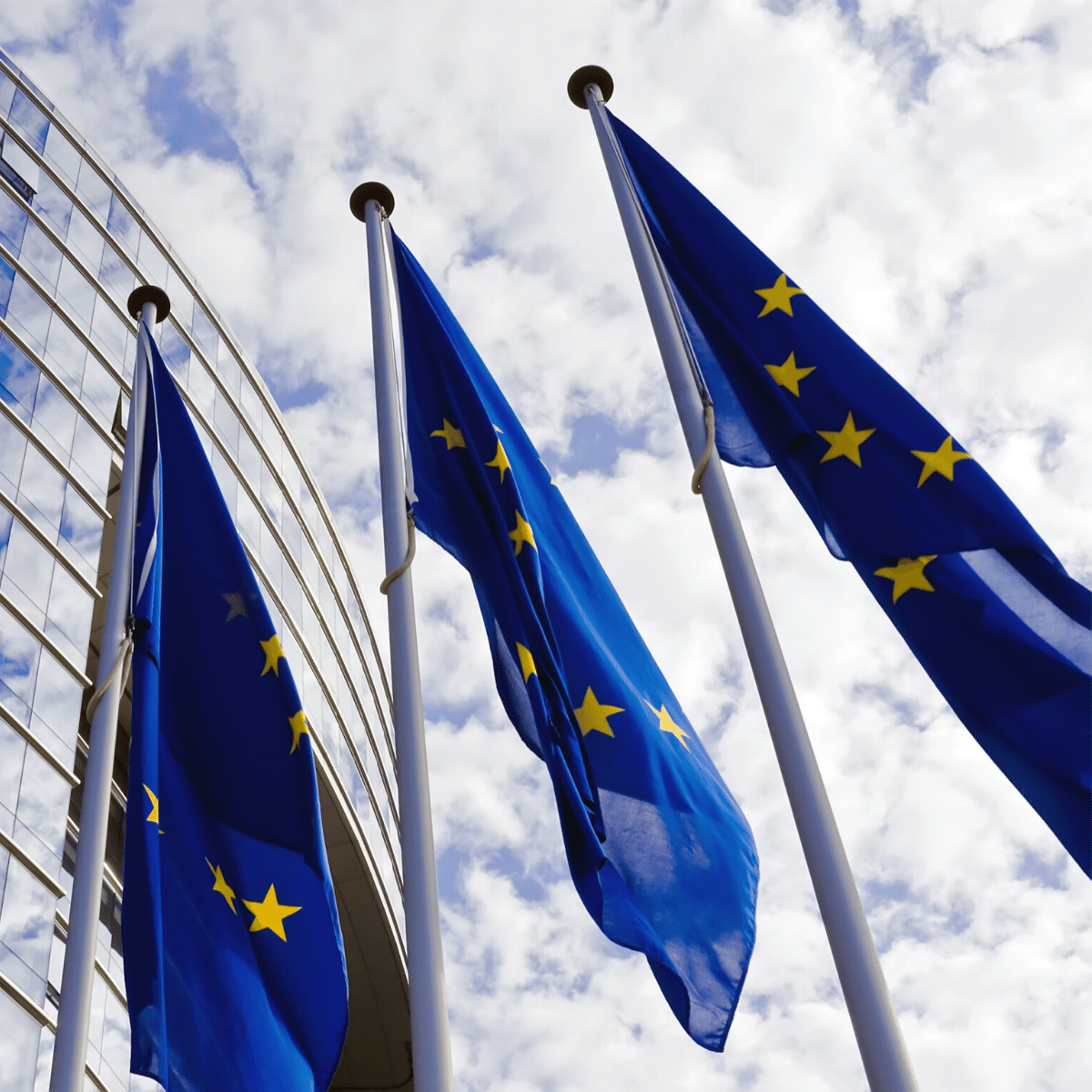
According to ILGA-Europe, the infringement procedures announced by the European Commission today show that the EU has come to a tipping point; after years of governments testing how far they can go, the European Commission has taken a clear step to hold Hungary and Poland accountable on the rule of law and fundamental rights.
Today, July 15, the European Commission announced that it will take landmark infringement procedures against both Hungary and Poland. The procedures against Hungary concern the censorship of a children’s book portraying LGBTI characters, and the legislation that entered into force last week, which prohibits the inclusion of LGBTI people in material in schools or in media for under-18s. The procedures against Poland concern a refusal to clarify whether LGBTI people are discriminated against in the labour market in the country’s so-called LGBT Free Zones .
According to ILGA-Europe, the leading LGBTI rights organisation in Europe, the infringements are a clear message to all member states that they are bound by their membership to respect the core principles of the European Union.
The first infringement against Hungary is in respect of a book of reimagined fairytales with diverse characters entitled, Wonderland is for Everyone, which was published in September 2020. The book became an immediate target of homophobic attacks by politicians in the ruling Fidesz party, including the Hungarian Prime Minister Viktor Orbán, calling it “homosexual propaganda”. In January, the Hungarian government ordered the publisher of Wonderland is for Everyone to print disclaimers identifying books containing “behaviour inconsistent with traditional gender roles”, thus restricting the right to freedom of expression and the right to non-discrimination as enshrined in Articles 11 and 21 of the EU Charter of Fundamental Rights and breaches the Unfair Commercial Practices Directive.
The second Hungarian infringement is in relation to legislative amendments voted in on June 15, banning the “portrayal and the promotion of gender identity different from sex at birth, the change of sex and homosexuality” for persons under 18 and for public servcie advertisement even without any age limit. The language surrounding this ban has been introduced into the following Hungarian legislation: the Child Protection Act, the Family Protection Act, the Act on Business Advertising Activity, the Media Act, and the Public Education Act, clearly breaching a number of EU laws and violate international human rights norms, in particular restricting cross-border information society services, and the Treaty principles of the freedom to provide services (Article 56 TFEU) and the free movement of goods (Article 34 TFEU), by failing to demonstrate that the restrictions are necessary, non-discriminatory, and proportionate and pursue a legitimate interest.
On the day the Hungarian legislation came into force, the European Parliament voted in favour of urgent legal action against its member state, saying that the law was “another intentional and premeditated example of the gradual dismantling of fundamental rights” in the country.
The infringement against Poland has been launched because of the non-cooperation of Polish authorities in clarifying the question in how far the so-called Family Charters and LGBT Free Zones, which over 100 Polish local governments have adopted since 2019, might lead to discriminationon the grounds of sexual orientation and the Charter of Fundamental Rights, specifically ensuring non-discrimination in access to and in the labour market in line with EU anti-discrimination law, and also regarding management of the Structural and Investment Funds.
According to ILGA-Europe’s Advocacy Director, Katrin Hugendubel: “By opening infringement procedures, the EC clearly states that the Polish and Hungarian governments are violating fundamental rights and, as they are unwilling to engage in sincere cooperation, and is now stepping up and opening a clear procedure to ensure the full respect of the Treaties and EU legislation. This could ultimately result in the EC bringing both countries in front of the Court of Justice of the European Union (CJEU).”
Over the past two years, ILGA-Europe has been advocating at the highest EU levels for sanctions against Poland and Hungary, as the governments of both countries have increasingly stoked anti-LGBTI hatred, thereby sewing political and societal division. ILGA-Europe stated concerns that this instrumentalisation of a vulnerable minority, which was first employed by Vladimir Putin in 2013 with the Russian anti-propaganda law, was providing an example to the governments of other EU member states leaning in this direction, who saw Poland and Hungary acting with impunity in violation of EU directives and core values.
Executive Director of ILGA-Europe, Evelyne Paradis said: “For years now, we have been observing some EU member states consistently testing EU democracy and the protection of the rule of law and fundamental rights. The infringement procedures announced today send a clear signal that enough is enough. EU member states can no longer act against human rights with impunity, nor can governments go on instrumentalising minorities for political gains. They have to and will be held accountable.”
Background to infringement on Poland:
In September 2020, ILGA-Europe together with Polish LGBT rights organisations KPH (Campaign Against Homophobia) and Fundacja Równo?ci (The Equality Foundation) submitted a legal complaint to the European Commission setting out how these declarations introduce discrimination against LGBTI people and thus breach the European Council Directive (2000/78/EC), establishing a general framework for equal treatment in employment and occupation, as well as the Charter of Fundamental Rights Article 15 on Freedom to choose an occupation and right to engage in work, and Article 21 on non-discrimination. Based on the complaint, the EC has requested information from the Polish authorities in February this year, which to this day has not been provided, thereby constituting failure to comply with the principle of sincere cooperation under Article 4(3) TEU.
Further information:
- Read more about Hungary in our Rainbow Map and Annual Review.
- Read more about Poland in our Rainbow Map and Annual Review.
For further comment, contact Ana Muñoz, ILGA-Europe: ana@ilga-europe.org and +32 493 35 60 55
ILGA-Europe is alarmed by Hungarian Parliament’s moves to abolish the national Equal Treatment Authority
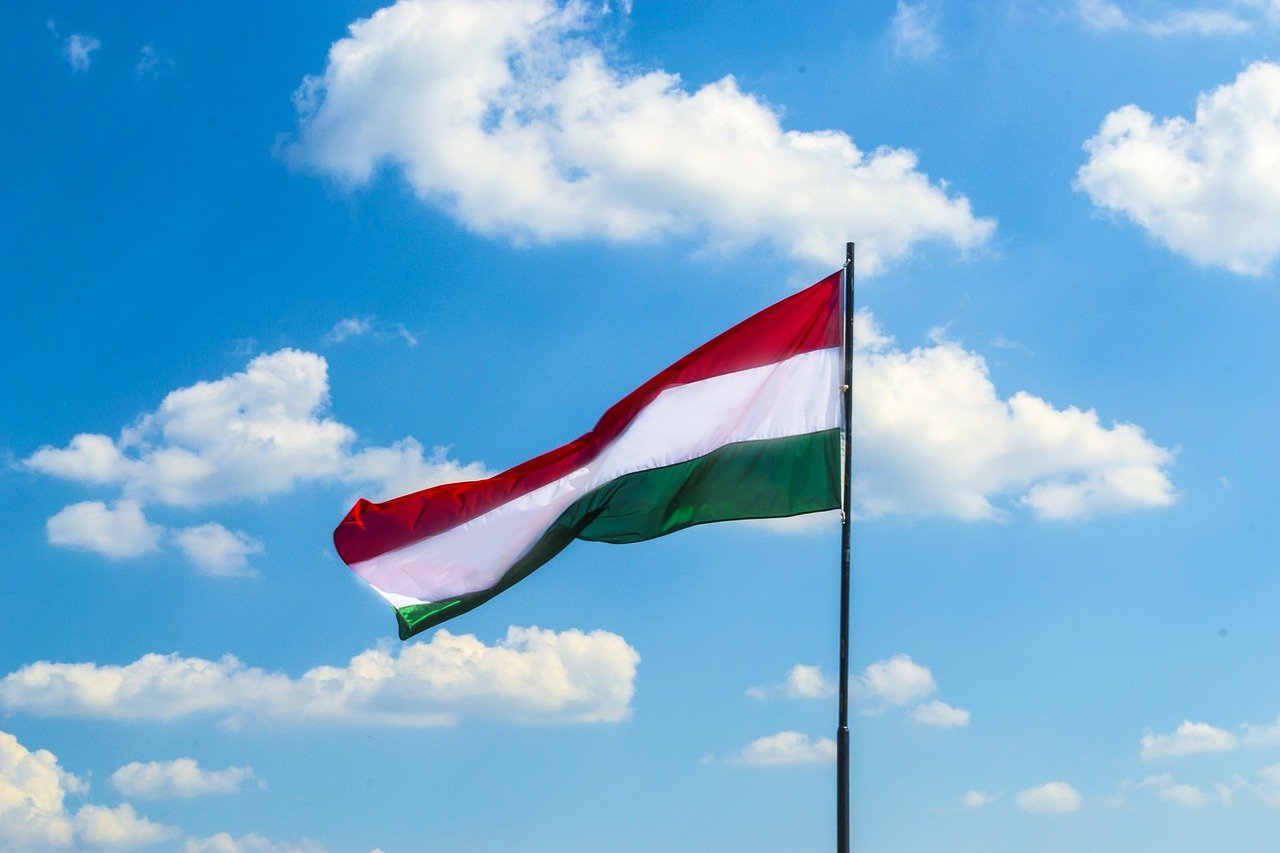
Today, Tuesday 10th November 2020 the Justice Committee of the Hungarian Parliament tabled a bill that would abolish the Equal Treatment Authority (ETA), Hungary’s most important equality body set up in 2005.
The ETA has a broad mandate to investigate cases of discrimination on grounds of sex, race/ethnicity, religion, age, disability, sexual orientation and gender identity. In recent years the ETA was one of the last public bodies standing up for the rights of LGBTQI people in Hungary: they have delivered several decisions finding discrimination based on sexual orientation and gender identity by public bodies, and in April 2020 they criticized the Government’s plan to ban legal gender recognition.
The bill foresees the duties of the ETA to be assumed by the Commissioner for Fundamental Rights, who is a loyal supporter of the government, and very inactive on LGBTI issues. ILGA-Europe strongly condemns this attempt by the government to reduce the efficacy of the anti-discrimination body enforcing Act no. CXXV of 2003 on equal treatment and the promotion of equal opportunities in Hungary, thereby depriving many LGBTI people from pursuing justice in cases of LGBTI-phobic discrimination and protecting the rights of all minorities in Hungary.
We call on the Council of Europe and EU institutions to hold Hungary accountable to its commitments to the respect of fundamental rights as enshrined in the European Convention of Human Rights, EU Treaties and EU Charter of Fundamental Rights. Equality Bodies play a fundamental role in ensuring non-discrimination and respect for fundamental rights of all citizens.
The Equal Treatment Authority would be abolished in less than two months, on January 1 2021. There have been no public consultations or impact assessment carried out about the reform, indicating a clear attempt by the Hungarian government to further erode the rights of minorities in Hungary and an eradication of the work of the Authority’s work on equality.
Poland is violating the fundamental rights of EU citizens and blatantly disregarding EU treaties and standards

The European Commission and member states are duty bound to hold Poland accountable to EU Treaties, asserts ILGA-Europe, alongside two Polish equality organisations, in a legal complaint citing the violation of fundamental rights of the EU by inciting hatred and discrimination against LGBTI people.
On Monday 14 September, ILGA-Europe together with Polish LGBT rights organisations KPH (Campaign Against Homophobia) and Fundacja Równo?ci (The Equality Foundation) submitted a legal complaint to the European Commission about so-called Family Charters and LGBT Free Zones, which over 100 Polish local governments have adopted over the last two years.
The complaint sets out how these declarations introduce discrimination against LGBTI people and thus breach the European Council Directive (2000/78/EC), establishing a general framework for equal treatment in employment and occupation, as well as the Charter of Fundamental Rights Article 15 on Freedom to choose an occupation and right to engage in work, and Article 21 on non-discrimination.
At the same time, many Polish LGBTI people have begun to write to the European Commission, often anonymously out of fear of further stigmatisation and hate, putting forward individual complaints about how they are being discriminated against in the cities that have declared themselves LGBT-free Zones and adopted Family Charters. Over 400 individual complaints were sent to the European Commission by LGBTI persons, sharing their fears for employment, health and life and their stories of discrimination in Poland.
With this complaint, ILGA-Europe and partners provide the legal analysis of how these Charters do not, as claimed by the Polish Prime Minister in a recent letter to the European Commission, protect Polish families, but instead put in place active discrimination against LGBTI people. Although there is no clear individual court case claiming discrimination in recruitment or employment at this point, the analysis shows clearly how the principles of Directive 2000/78/EC and the Charter of Fundamental Rights are being violated.
According to KATRIN HUGENDUBEL, Advocacy Director of ILGA-EUROPE: “The European Commission and Council can no longer remain silent in the face of such blatant violations of the principle of non-discrimination by a member state. Our legal analysis of the texts of the Family Charter clearly dismantles their discriminatory nature. The European Commission is duty-bound to answer the Polish Prime Minister’s letter, clearly rejecting the argument of “defending Polish families” and addressing the real harm that is being perpetrated on LGBTI people in Poland. EU law is being violated and the EC needs to start infringement procedures.”
According to MIKO CZERWI?SKI from FUNDACJA RÓWNO??: “Working in so-called ‘LGBT-free Zones’ we see what detrimental effect this is having on LGBTI people. They are losing their jobs or contracts, are excluded from local communities and are being violently attacked in their own cities. Fundacja Równo?? have also submitted complaints to the EC as we were denied access to an EU-funded cultural centre with the argument that we wanted to hold an “ideological event”, while a homophobic event was allowed to go ahead. The examples of discrimination and violence provided in all of the 400 individual complaints sent to the EC show how seriously Poland is violating fundamental rights.”
According to MIROS?AWA MAKUCHOWSKA from CAMPAIGN AGAINST HOMOPHOBIA (KPH): “LGBT people living in so-called ‘LGBT-free Zones’ cannot wait any longer. Hundreds of complaints have been sent to EC as fundamental rights are being violated on a daily basis. It’s high time for both EC and the Council to act – the citizens are calling for the immediate trigger of infringement procedure and to finally act under the Article 7(1) TEU procedure.”
Poland’s Family Charters are only one element in the hate campaign that Polish LGBTI people have been subjected to since 2018. In the country’s presidential elections earlier this year, President Andrzej Duda degraded and scapegoated the LGBTI community in his campaign for election victory. This included claims that LGBT people “are not people, but ideology” and “more destructive than communism”, among other attempts at dehumanisation and incitement of hatred and fear. In the 2020 ILGA-Europe Rainbow Map, which benchmarks European countries in terms of LGBTI rights, Poland became the lowest ranking EU country, having lost points because LGBTI human rights defenders have been increasingly at risk, authorities have taken active measures to undermine civil society associations, and there have been attempts to ban public events.
Last week, the Polish Commissioner for Human Rights, published his investigation of the arrests and detention of 48 LGBTI activists, which took place over the weekend of 7-9 August 2020, identifying degrading treatment, bordering on inhumane, in arrest and detention, and breaches of fundamental rights as set out in the Treaty and the Charter of Fundamental Rights, including mistreatment, the right to legal help, to inform a close person, to access to medical help, and the right to information.
KATRIN HUGENDUBEL concludes: “We have seen first actions by the European Commission in August, when Commissioner Dalli rejected six applications for town twinning projects by local governments who have declared themselves LGBT-free zones, but we need a more coordinated and holistic response, both from the European Commission and the European Council.
EC President, Ursula von der Leyen will address the Parliament with her State of the Union speech tomorrow, Wednesday morning. What state is the Union in when Member States are freely violating the fundamental rights of EU citizens, and the principles of non-discrimination as set out in the Treaty?”
ILGA-Europe and ERA joint statement on the Decision of the Constitutional Court of North Macedonia to repeal the Law on Prevention of and Protection against Discrimination
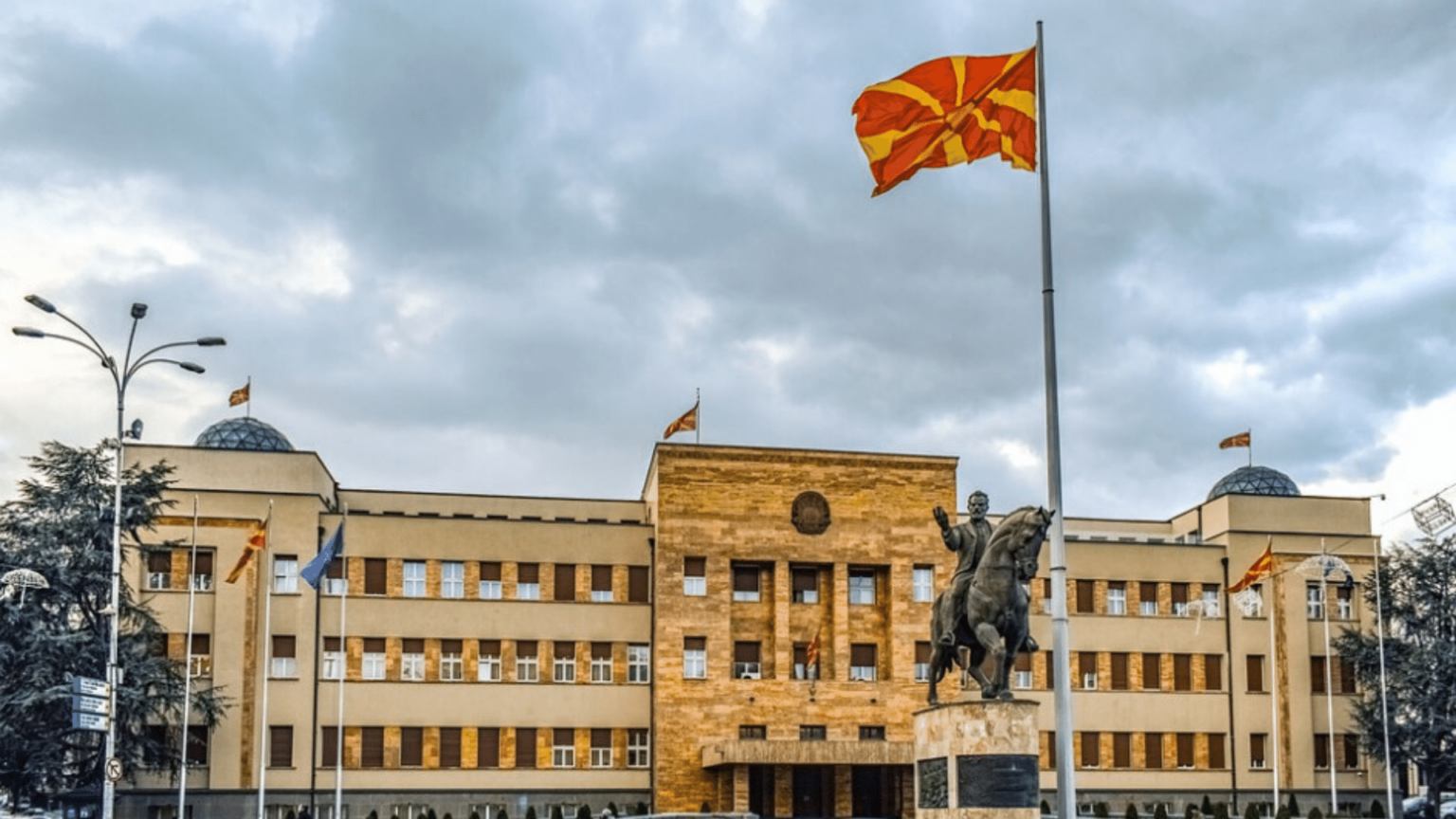
It is with great disappointment that ILGA-Europe and ERA received the news of the decision of the Constitutional Court of North Macedonia to repeal the Law on Prevention of and Protection against Discrimination on 14th May 2020.
This decision comes after an initiative submitted by the previous composition of the Commission for Protection against Discrimination to assess the constitutionality and the legality of the Law, as the Law was adopted without the required majority as regulated by Article 75 of the Constitution.
The adoption of the Law on Protection and Prevention of Discrimination was a victory for all citizens and for equality. The Law had for the first time explicitly prohibited against discrimination based on sexual orientation and gender identity – the result of many years of work, tireless commitment and perseverance of LGBTI activists in North Macedonia. The Law has also received positive opinions from the Venice Commission, the United Nations, the European Union and the OSCE-ODIHR.
The repealing of this Law means that in practice, LGBTI people are not efficiently and effectively protected from discrimination, in addition to the other marginalized groups who were previously protected under this law; such as Roma people, people living in poverty, people with disabilities, and women. It is still not clear whether the previous anti-discrimination law will become effective as a replacement, as the Constitutional Court has yet to decide on this matter, which creates a legal gap regarding anti-discrimination law. Additionally, the repealing of the Law will further postpone the establishment of the Commission for Prevention and Protection from Discrimination, leaving North Macedonia with a lack of independent and professional institutions for providing protection from discrimination, in a context of persistent hate crime and hate-speech being targeted at LGBTI people.
Protection from discrimination based on sexual orientation and gender identity has become a standard in the region, with Albania, Kosovo and Serbia having adopted such laws, and Bosnia and Herzegovina and Montenegro adopted such laws which are also inclusive of sex characteristics, thereby also protecting intersex people against discrimination.
This situation is especially urgent due to the postponement of parliamentary elections that were supposed to take place in April 2020, as a result of Covid-19 crisis. This means that until there is an election, there will be no opportunity for the Law to be re-adopted, leaving LGBTI people unprotected for a number of months, even until well into 2021.
The Ministry of Labour and Social Policy, which was the key actor in the elaboration and adoption of the Law back in 2019, has shown the commitment to the standards that it has set out, as well as a clear commitment to ensuring that the Law gets re-tabled after the elections.
We therefore call on the authorities of North Macedonia to ensure the protection of LGBTI people against discrimination under existing legal provisions, and we call upon the major political parties in the country to re-table the Law on Prevention of and Protection against Discrimination as soon as possible after the elections. North Macedonia must join its Western Balkan neighbours in protecting its citizens from discrimination based on sexual orientation and gender identity. In addition, we remind the authorities of North Macedonia that such a law is a key requirement for the opening of accession negotiations with the European Union.
LGBTI people should not be left behind and should be provided with adequate protection from discrimination, legal recognition of their identity, equal treatment and comprehensive human rights standards.
ILGA-Europe and ERA
UPDATE: On 27 October 2020, the Parliament of North Macedonia re-adopted the Law on Prevention of and Protection against Discrimination, which covers sexual orientation and gender identity grounds. Read more about the re-adoption of the Law.
Voices of ILGA-Europe: Meet Italian legal eagle, Emiliano Ganzarolli
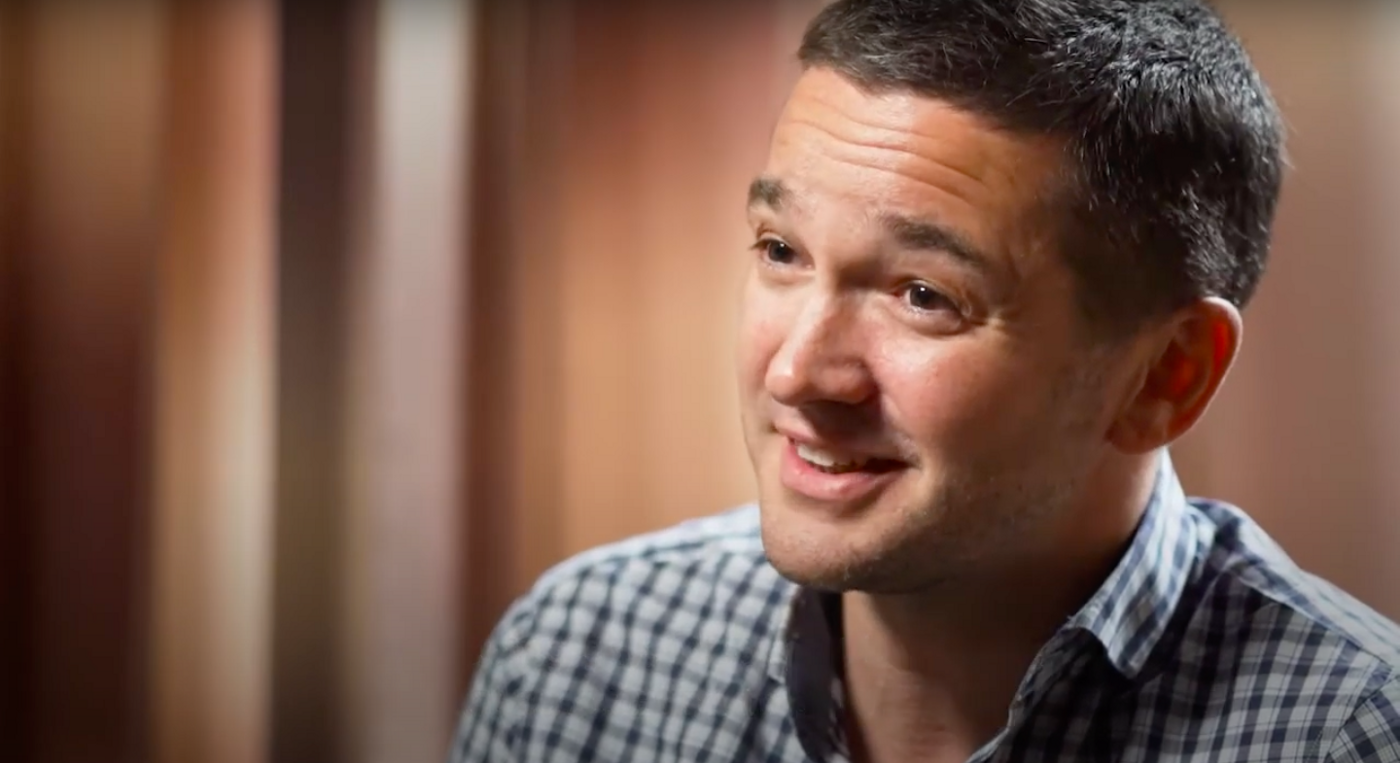
The Court of Justice of the European Union has just made a landmark decision, saying that a lawyer who declared that he would never hire a “homosexual” person in his law firm was discriminating under an EU employment directive. Meet activist Emiliano Ganzarolli, from the powerhouse group of LGBT lawyers who took the case.
Emiliano Ganzarolli is a member of Rete Lenford Avvocatura Per I Diritti LGBT (Lawyers For LGBT Rights) an association of about 150 lawyers founded in 2007 to take representative action on the behalf of LGBT people before national and international jurisdictions, and to ensure enforcement of LGBT rights in Italy.
The association has notably been active in the fight for marriage equality, and the implementation of a civil partnership framework for same-sex couples.
“In 2007 there was nothing in the Italian law concerning either civil unions or marriage and the association itself was actually founded because of this lack in our system,” says Emiliano in an interview filmed for the Voices of ILGA-Europe project last October. “It brought together lawyers and activists from the civil society to bring cases up to the constitutional level. In 2010 the constitutional court was asked to deliver a judgement on the possibility or not to have equal marriage in Italy. The case was not successful, we still don’t have equal marriage in Italy, but that was the beginning of many battles the association took.”
Recently, the Association was involved with the first case in Italy involving discrimination in an employment context, after an attorney declared during a radio interview that he would never hire a homosexual person in his law firm.
The case was brought in front of a tribunal in the Court of Appeal by Rete Lenford. “It was successful in the first instance, and the second, and then the case was appealed in front of the Supreme Court in Italy,” Emiliano explains. “The Supreme Court referred the case to the Court of Justice of the European Union (CJEU).
“When we received the communication that the Supreme Court had referred the case to the CJEU, it was the immediate reasoning to involve an umbrella association, somebody able to actually properly talk at the same level with the European institutions. So it came naturally to involve ILGA-Europe in this. ILGA-Europe’s litigation department has been extremely supportive, especially putting us in contact with the other EU countries.”
Two distinct questions arose before the Italian Supreme Court: Firstly, does legislation prohibiting discrimination in access to employment also cover a general statement made on the radio to the effect that the interviewee would not recruit homosexuals to his law firm? Secondly, in the absence of an identifiable victim, is it possible for Rete Lenford to seek to enforce the prohibition of discrimination in employment and occupation, including through the award of damages?
In a judgement delivered on 23 April 2020, the CJEU decided on behalf of Rete Lenford. Importantly the Court noted that the lawyer’s statements may fall within the ambit of the European Union anti-discrimination directive, even if no recruitment procedure had been opened or planned at the time when the statements were made.
Because discriminatory statements can have a chilling effect on prospective employees, therefore difficult to have an identifiable victim, the Court noted that where national law provides relevant conditions, an association, as in this case Rete Lenford, may bring legal proceedings for a finding of discrimination and for a sanction to be imposed.
Welcoming the judgement, Senior Litigation Officer with ILGA-Europe Arpi Avetisyan said: “I’m extremely pleased that CJEU reaffirmed protection against homophobia in employment and made clear that discriminatory statements in employment and occupation under the EU law are strictly prohibited. The Court sent a strong message that EU law does not tolerate discrimination based on sexual orientation and safeguards “the principle of equal treatment in employment and occupation, and the attainment of a high level of employment and social protection”. Congratulations to Rete Lenford on the victory and for setting an important milestone in clarification of EU law.”
Joint Statement: Democracy under attack
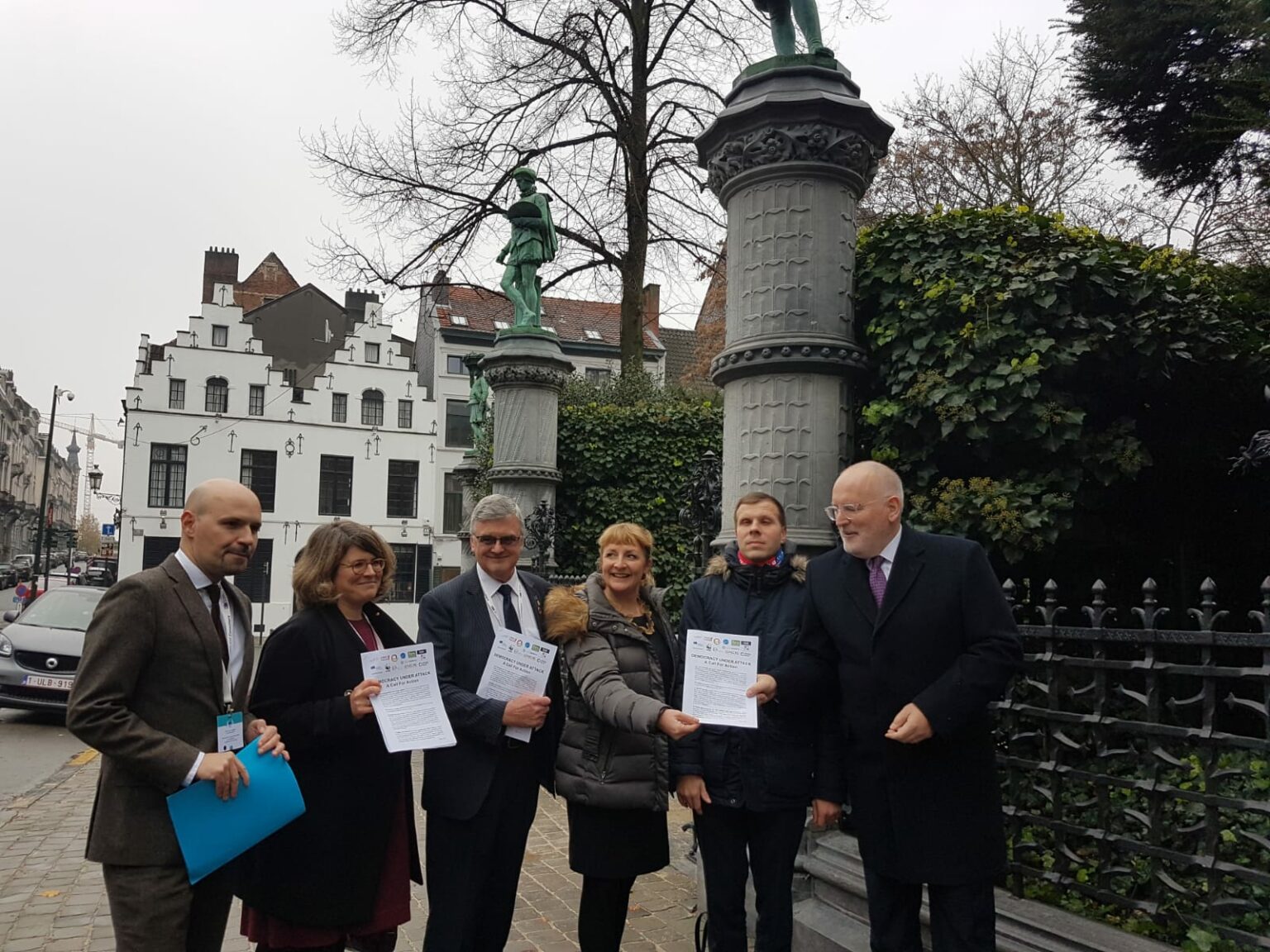
Fourteen civil society organisations -including ILGA-Europe- have written to the European Union and European governments to respond to the threat to our democracies in Europe.
“Our democracies are under attack. The rise of hate, divisive, and socially and environmentally destructive political forces– including in many EU countries – are putting our democracies at risk. They are undermining democratic institutions and the rule of law by fomenting inequality and discrimination and by seeking to muzzle independent media, non-governmental organisations, trade unions, the judiciary, women, and marginalised groups, including ethnic and religious minorities, LGBTI people and people with disabilities. Democracy should mean working in the best interests of all, and not of some at the expense of others with less power.”
“EU action is overdue. We the undersigned call on the European Union and European governments to respond to this threat and to:
- Uphold the rule of law.
- Apply zero tolerance for hate speech and cyber-violence.
- Defend the right for people to campaign for the public interest.”
Signatories:
- CONCORD Europe (with the special support of IPPF EN)
- European Anti-Poverty Network (EAPN)
- European Disability Forum (EDF)
- European Movement International
- European Trade Union Confederation (ETUC)
- European Women’s Lobby
- European Network Against Racism (ENAR)
- Fern
- Friends of the Earth Europe
- Greenpeace
- ILGA-Europe
- International Federation for Human Rights (FIDH)
- Social Platform
- WWF
Read the joint statement in full here.
Health4LGBTI: Reducing health inequalities experienced by LGBTI people
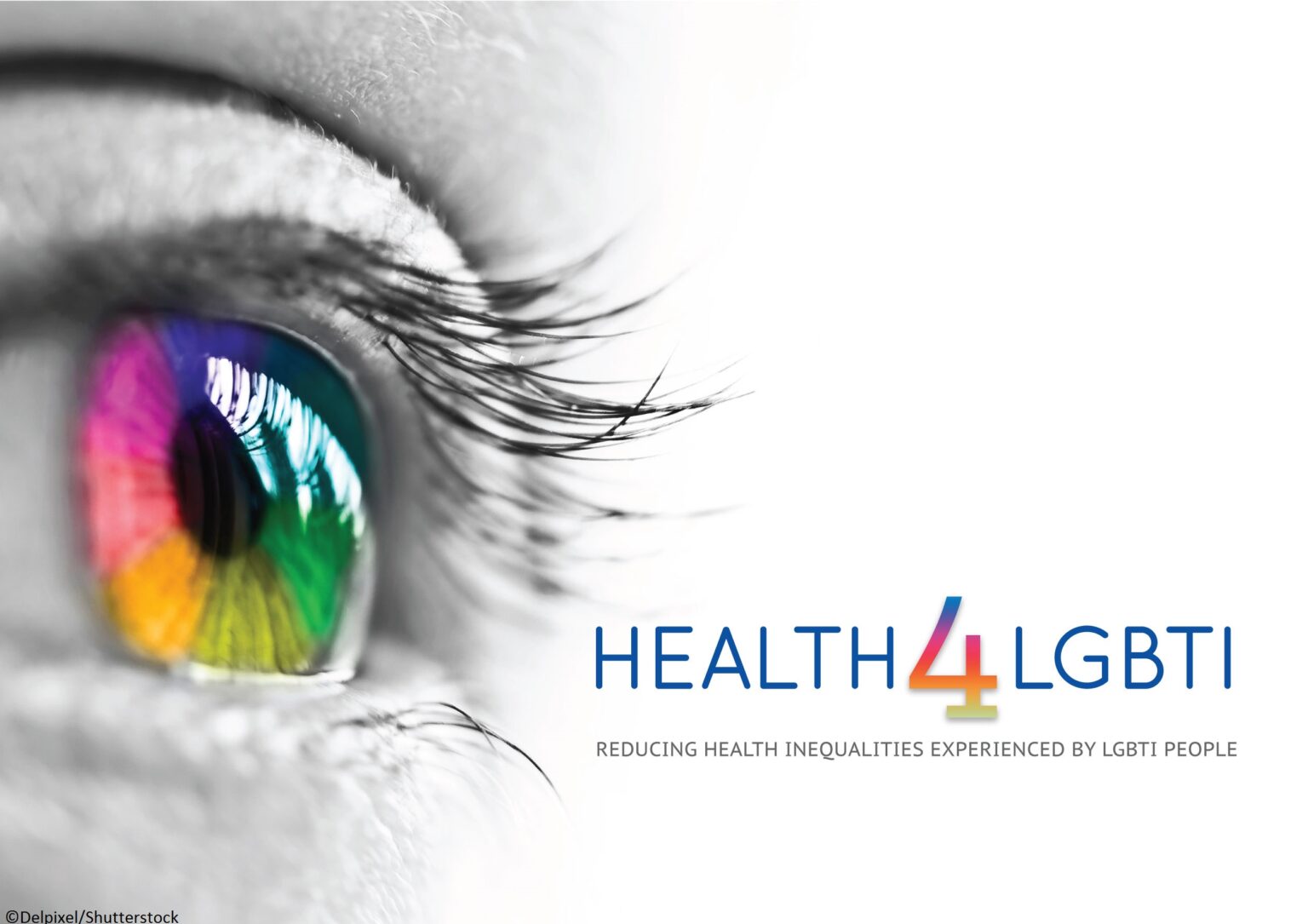
Health4LGBTI is an EU funded pilot project aiming at reducing health inequalities experienced by LGBTI people. It has been implemented between March 2016 and March 2018.
ILGA-Europe was part of the Consortium that under a service contract with the European Commission has explored the health needs and challenges faced by LGBTI people and analysed the key barriers faced by health professionals when providing care for LGBTI people.
General information about the project
The aims of the Health4LGBTI pilot project are to raise awareness of the specific health inequalities and barriers experienced by LGBTI people and to increase understanding of how best to reduce them; focusing on overlapping inequalities stemming from discrimination and unfair treatment on other grounds. The project also aims to provide European health professionals with relevant tools to allow them to develop the right skills and knowledge to overcome these barriers.
The other Consortium partners include AOUI-Verona (Italy, project coordinator), University of Brighton (UK), the National Institute of Public Health – National Institute of Hygiene (Poland) and EuroHealthNet.
For more information, visit the European Commission’s website page about the project.
Project activities
The project explored some of the particular health needs and challenges faced by LGBTI people and analysed the key barriers faced by health professionals when providing care. A variety of activities took place including:
- A state-of-the-art study of the health inequalities experienced by LGBTI people and the barriers faced by health professionals in providing healthcare for LGBTI people;
- 12 focus group studies (2 focus groups in each of the 6 participating EU Member States: Poland, Italy, UK, Belgium, Bulgaria, and Lithuania) to map the barriers faced both by LGBTI people and health professionals;
- The development of a modular training course aimed at increasing the knowledge, attitudes, and skills of healthcare professionals when providing care for LGBTI people;
- The piloting of the training course in the same Member States where the focus groups were conducted, in order to fine-tune and finalise the modules;
- A final European conference, which was part of the dissemination efforts to raise awareness of the topic and of the training course in particular.
Key findings
Although situations vary across Member States, the state-of-the-art study and focus group studies confirmed the existence of health inequalities, barriers, and discrimination LGBTI people experience that have an impact on their health outcomes. Key findings included:
1. Root causes likely to contribute to the health inequalities of LGBTI people are:
- prevailing cultural and social norms that assume people are non-LGBTI by default;
- minority stress associated with an individual’s LGBTI identity;
- victimisation;
- discrimination (individual and institutional), and;
- stigma.
2. LGBTI people face significant mental and physical health inequalities and are at higher risk of poor mental health compared to the general population, including higher incidence of suicidal thoughts, substance misuse, anxiety, and deliberate self-harm.
3. LGBTI people face barriers when accessing healthcare, the most significant ones are:
- prejudicial attitudes and discriminatory behaviour of healthcare staff compounded by their use of heteronormative language and documentation;
- fear surrounding the disclosure of their gender identity, sexual orientation, or sex characteristics;
- lack of consistency and continuity in the care provided to LGBTI people;
- lack of knowledge and recognition of the specific health needs of LGBTI people;
- implicit and explicit LGBTI-phobia where LGBTI people report being denied access to health services due to their sexual orientation, gender identity, or sex characteristics.
4. Many health professionals lack knowledge and cultural competence around the lives and healthcare needs of LGBTI people. Medical literature regarding the health of LGBTI people needs to be updated and health professionals’ assumptions should be questioned such as assuming that people are non-LGBTI by default; that being LGBTI is not relevant for healthcare providers; and beliefs that LGBTI people do not experience significant discrimination.
5. All groups within LGBTI communities (and particularly bisexual, trans, and intersex people) encounter their own specific barriers, and healthcare professionals’ knowledge of these groups is limited.
6. Although scarce, examples of promising practice meeting the needs of LGBTI people do exist. The state-of-the-art study revealed significant gaps in research. For example, there is very limited research to understand the general health profile of trans and intersex people, their experiences, as well as their physical and mental health needs. Similarly, further research adopting an intersectional perspective on health inequalities experienced by LGBTI people is required.
Training course
Findings from the state-of-the-art study and focus group studies were used to develop a dedicated training course for healthcare professionals aiming to increase their skills, knowledge and competences when providing care for LGBTI people. The course, comprising four training modules, is aimed at all health professionals regardless of their specialisation or experience of working with LGBTI people, and can include administrative staff (or similar) working in health settings.
The training modules were piloted in the same countries as the focus group studies, and fine-tuned based on feedback. The training is formulated in such a way as to facilitate replication on a large scale in many different European countries.
The training package can be downloaded here.
Training medical professionals on LGBTI inclusive practices works!
Published in December 2019, this paper describes the training methods and impacts of the #Health4LGBTI research project to develop training materials for healthcare providers. Results indicate that training participants increased their understanding, sensitivity, and empathy with LGBTI people seeking healthcare across all sites for the training.
Solmaz v. Turkey
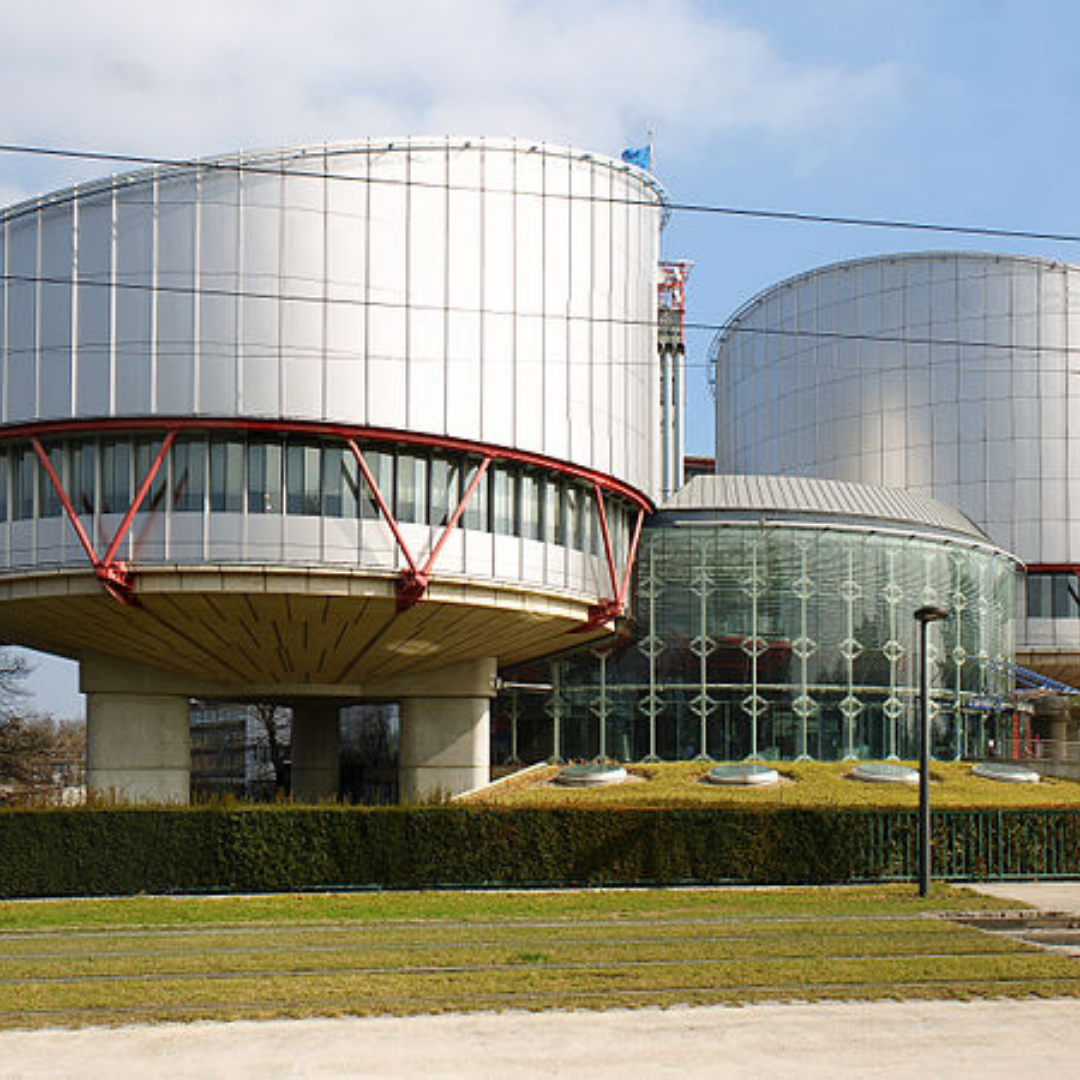
Discrimination on the ground of gender identity
(Application no. 49373/17), 13 February 2018
Find here the communicated case.
- The applicant was taken out of a bar allegedly on account of her appearance and gender identity. Subsequently, she lodged a criminal complaint against the owner of the bar. The Turkish courts considered it had not been proven that the accused’s act had been based on discriminatory motives.
- ILGA-Europe together with TGEU and Kaos Gay Lesbian Cultural Research and Solidarity Association (Kaos GL) submitted the following:
- According to Fundamental Rights Agency survey from 2015, discrimination on the grounds of gender identity was regarded as one of the most widespread forms of discrimination in Europe. It affects notably access to services, employment or health.
- Gender identity emerges as a protected ground under international anti-discrimination law. UN Treaty Bodies and regional human rights systems consistently mention gender identity among the protected characteristics of anti-discrimination clauses. The same approach is followed through legislation or court practice in numerous European and other democratic societies. Gender identity is protected under Article 14, although the language used by the Court to date has been inconsistent. This area of jurisprudence would benefit from some clarity.
- In Turkish law, discrimination in different fields is prohibited in different regulations and seen as a violation of rights. However, ‘sexual orientation’ and ‘gender identity’ are not explicitly protected in anti-discrimination law, leaving LGBTI people outside the scope of relevant legislation.
DK v. Croatia
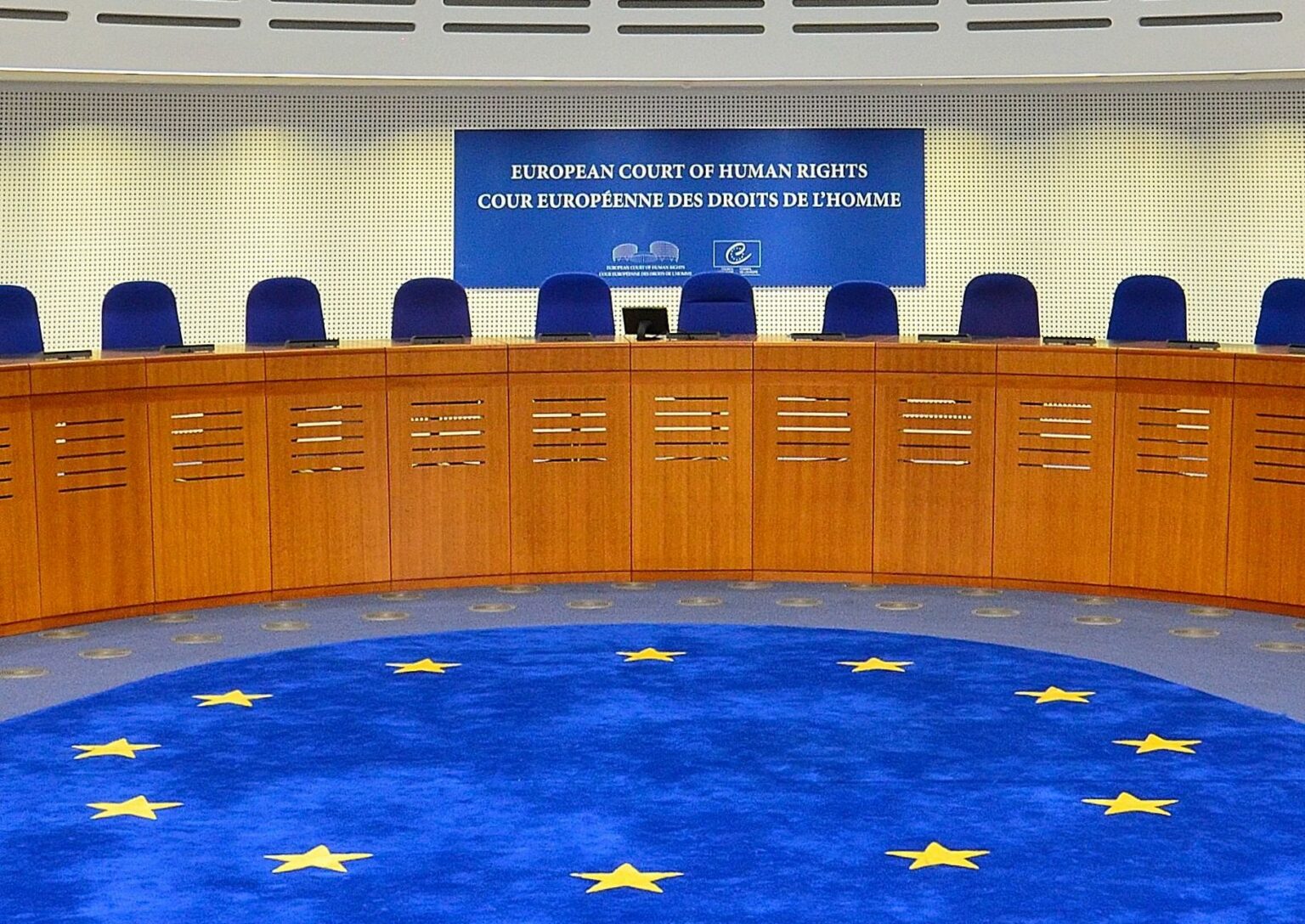
Ill-treatment by police officers
(Application no. 28416/14), 8 June 2015
Find Court’s communication here.
Find Court’s decision here. (Inadmissible, premature complaint before the Court)
- The case concerned police ill-treatment and discrimination based on applicant’s sexual orientation, with subsequent lack of an effective investigation by the Croatian authorities in that respect.
- The joint intervention by ILGA-Europe, the AIRE Centre and the ICJ focusedon the positive obligations of the Contracting Parties under the Convention in respect of allegations disclosing credible evidence of treatment prohibited under Article 3, sexual orientation and/or gender identity as a ground of discrimination, and the duty of the authorities to take all reasonable steps to identify any discriminatory motive in connection with allegations of ill-treatment.
- Submissions further argued that discrimination based on sexual orientation is prohibited on the international and European levels. The ECtHR expressly stated that the concept of one’s sexual orientation is a prohibited ground of discrimination under Article 14 ECHR and discrimination on this ground is considered ‘suspect’ and subject to ‘particularly severe scrutiny’.
ILGA-Europe’s key demands for ensuring the enjoyment of the right to health and access to health without discrimination
Position on the right to the highest attainable standard of health of lesbian, gay, bisexual, trans and intersex (LGBTI) people
ILGA-Europe advocates for policies and laws that fully respect, protect and fulfill the right to health of LGBTI people. This implies not only negative obligations (prohibiting policies that violate the physical integrity of LGBTI people) but also positive measures (facilitating access to services, promoting healthy behaviours, etc.).
Therefore, ILGA-Europe calls for the removal of all discriminatory legislation, policies and practices in the area of health. LGBTI people must have access to appropriate and patient-centered healthcare systems that fully meet their health needs.
The identities of LGBTI people should not be pathologised or their bodies medicalised. Individuals who need or wish specific treatments should be informed about their long-term consequences, and those treatments should then be made accessible and affordable.
Equality for All
The proposed Directive, if adopted, will extend the protection from discrimination on the grounds of religion or belief, disability, age, or sexual orientation to the areas of social protection, education and access to goods and services. This Directive would eliminate the hierarchy of rights that currently exists in the EU by giving the listed grounds the same protections guaranteed under the Race Directive.
Please read below for more information, including ILGA-Europe’s stance on the Directive and what you can do to help its passage.
-
In this section you can find information of the current legal situation and read examples on how this can affect the daily life of LGBT people living in the European Union.
At the moment, EU law protects people against discrimination based on sexual orientation – as well as age, disability, religion and belief – in the area of employment (Employment Framework Directive 2000/78). Unfortunately, EU law does not at present contain an explicit prohibition of discrimination on the grounds of a person’s gender identity and gender expression. Indeed, the EU treaties only entitle the EU to take action to combat “discrimination based on sex, racial or ethnic origin, religion or belief, disability, age or sexual orientation” only, without mentioning trans issues. Neither does a prohibition on discrimination against trans people appear in the EU Charter of Fundamental Rights.
In practice, this means that you are legally protected across the EU against, for example:
- Being refused a job or fired because of your sexual orientation
- Being harassed by colleagues at work because you are gay or lesbian
However, European legislation does not protect against discrimination based on sexual orientation, age, disability, religion and belief, in other areas of life such access to goods and services (including housing), social protection and social advantages, education and health care.
In practice, this means that not everyone in the EU is protected against:
- Homophobic bullying in school
- Refusal of medical services and treatment to openly LGBT people
- Refusal to give a double room in a hotel to a same-sex couple
- Refused access to social security schemes, such as survivors’ pensions and financial assistance to carers
The grounds of race and gender enjoy stronger protection in the European Union:
- The 2000/43 Race Equality Directive protects against discrimination based on race and ethnic origin in all areas of life
- Sex discrimination is prohibited by EU law in employment and in access to goods and services (Equal Treatment Directives 2006/54 and 2004/113). Trans people are partly covered by these instruments. More information on how trans people are covered by existing EU law can be found in the following Report ordered by the European Commission. and in the following guide published by our friends from Transgender Europe.
It is important to note that the legal protection against discrimination based on the different grounds varies from one EU country to another. All Member States have legal rules going beyond what is already required by European law, but:
- discrimination on some grounds (age, disability and sexual orientation) is less covered by national laws than other grounds
- national laws may prohibit discrimination for all the grounds but only in some areas of life
- and there are no minimum applicable standards of non-discrimination across the EU
-
The proposed anti-discrimination Directive currently identifies four different grounds that will be protected from discrimination in the areas of social protection, education, and access to goods and services. The protected grounds are religion or belief, disability, age, and sexual orientation. ILGA-Europe supports this multi-ground approach for several reasons.
These grounds are the same grounds protected in the Framework Directive for equal treatment in employment and occupation (2000/78/EC). By passing a Directive that extends protection from discrimination based on these grounds in the areas of life mentioned above, the European Union brings its anti-discrimination legislation in harmony. Currently, the Race Directive protects European citizens from discrimination in all the areas of life.
Instead of having a hierarchy of rights among the different grounds that are protected in the EU, ILGA-Europe advocates for a holistic and inclusive anti-discrimination law that protects all vulnerable groups from bias in all areas of life.
ILGA-Europe supports the proposed Directive for the following reasons:
- To protect against forms of discrimination that take place on a daily basis
A growing body of academic and community-based research shows that lesbian, gay and bisexual people across the EU face discrimination in access to social protection, health care and services, education, housing, goods and services, among other areas.
Legislation is an important and indispensable pre-condition to address sexual orientation discrimination, and other grounds of discrimination. Non-legislative measures are rarely effective unless they are underpinned with binding and enforceable rights, especially when dealing with forms of discrimination which are not yet “socially accepted” as legitimate.
- To end a de facto hierarchy of rights at European level
The grounds of race and gender enjoy stronger protection in EU law than the grounds of sexual orientation, age, disability, religion and belief. This “hierarchy” is contrary to international obligations under human rights instruments such as the International Covenant on Civil and Political Rights (article 26) and the European Convention on Human Rights (article 14)
This new EU directive would ensure that five grounds of discrimination are treated equally in European law. However, beyond this directive, there will be a need to fill the gap in protection against discrimination on the ground of gender which is not prohibited in education.
- To harmonise protection against discrimination throughout the EU
A single comprehensive law covering age, disability, religion and belief, and sexual orientation would provide a coherent, transparent and understandable body of law with regard to non-discrimination.
It would provide legal clarity for businesses, as well as citizens. Everyone would know the minimum applicable standards of non-discrimination wherever they are.
A new law would also allow for freedom of movement of workers and employers where unequal protection may act as a disincentive to move to certain Member States.
-
The proposed directive adopted by the European Commission on 2 July 2008 was sent to the European Council which needs to approve it if the directive is to become EU legislation. This means that the proposed text is now up for negotiations by national governments.
This process is likely to be a challenging on since a directive related to non-discrimination (i.e. based on Article 19 of the EU Treaty) needs to be adopted unanimously, i.e. by ALL Member States.
Therefore, your help is absolutely necessary to ensure that ALL Member States support a new EU directive.
PLEASE keep the ILGA-Europe office informed about your activities and developments in your country in relation to the directive. It will help us to be coordinated in our campaign.
Lobby your government
What can you do?
We need everyone to call on their decision-makers and governments to support the horizontal directive.
This can be done by writing to your head of government or head of state (President, Prime Minister, or Chancellor) and to the minister responsible for social affairs and equal opportunities in your country to
- Call on your government to support a proposal for a new Directive that covers discrimination based on sexual orientation, along with the grounds of age, disability, religion and belief, in areas outside employment.
- Remind your government that there is extensive evidence of discrimination based on sexual orientation in areas outside employment
- Remind your government that it has an obligation under international human rights law to ensure enjoyment of all human rights without discrimination
You can also request contact the ministry responsible for social affairs and equal opportunities and request meetings where appropriate to find out about your government’s position and to establish a dialogue with your ministry on the content of the directive. It is important to know about Member States’ concerns with the text and to be ready to discuss them if we want to reach an agreement.
Think about coalitions with your colleagues from NGOs working on other grounds of discrimination, from human rights organisations, trades unions and equality bodies.
Remember that EU Member States have made commitments which they should fulfil. For more information about States’ human rights obligations and other commitments, please refer to the following document: The Briefing Note
-
- ILGA-Europe’s position on the proposed Directive (October 2008)
- ILGA-Europe’s Written Response to the European Commission Consultation on New Anti-Discrimination Measures
- Discrimination based on sexual orientation – Additional evidence (Dec. 2007)
- Case for a Horizontal Anti-Discrimination Directive (ILGA-Europe/ENAR)
Association Accept and Others v Romania

Rights to freedom of association, privacy and freedom from discrimination
(Application no. 48301/08), November 2013
Find Court’s decision here. (Inadmissibility)
- This present case arises from the requirement by the authorities that ACCEPT Association (“ACCEPT”) provide details of its new members (inter alia name, profession, and home address) for publication in the special register of associations and foundations. ACCEPT’s objective is to promote the rights of lesbian, gay, bisexual and transgender persons in Romania.
- ILGA-Europe and partners submitted the following:
- Members of the LGBTI community, and particularly LGBTI human rights defenders, may be at risk of hate motivated violence and other forms of discrimination in Council of Europe member states, and therefore have sound reasons for wishing to protect their privacy.
- International and comparative precedents protect the rights to freedom of association, privacy and freedom from discrimination of members of human rights organisations.
- The Court delivered inadmissibility decision on 24 May 2016.
Ladele and McFarlane v. UK

Refusal to provide services
(Application nos 51671/10 and 36516/10), September 2011
- In both cases the issue is the denial of services to members of the public because of their sexual orientation by a religiously-motivated individual. Ms Ladele, a marriage registrar, and Mr McFarlane, a relationship counsellor, refused to respectively carry out civil partnerships and counselling for same-sex couples, due to their Christian beliefs. Disciplinary sanctions were taken against them by their employers.
- Professor Robert Wintemute on behalf of ILGA-Europe, the International Commission of Jurists, and FIDH submitted the following:
- Individuals providing good or services are not entitled to accommodation of their religious beliefs where they require that they exclude segments of society on the basis of personal identity characteristics such as sexual orientation. The right to manifest one’s religion is not absolute and may be circumscribed in the name of compelling objectives. Protecting the right of others to be free from discrimination is a legitimate limitation on the right to manifest one’s religion in the public sphere. It is necessary in a democratic society because the elimination of discrimination based on sexual orientation corresponds to a pressing social need.
- This analysis is borne out by national law and practice which commonly deny such exemption to ensure the equal provision of goods and services to people regardless of sexual orientation.
- The European Court of Human Rights delivered its judgement in 15 January 2013.
- Following the same approach as interveners above, the Court held that there was no violation by the State of the applicants’ right to freedom of religion (Article 9 of the Convention). Its reasoning focused on the importance of balancing the right to freedom of religion with the public interest in providing non-discriminatory services and ‘ensuring that members of the public, regardless of their sexual orientation, are treated with dignity and have equal access to services.’
M.W. v. United Kingdom

Social security rights
(Application No. 11313/02), 5 November 2008
Find Court’s judgement here. (Complaint rejected as manifestly ill-founded)
- The applicant complained that, as a survivor of a same-sex couple who had had no means to achieve formal recognition of their relationship, he had been denied a benefit available to a survivor of a married couple.
- ILGA-Europe, together with FIDH, ICJ and AIRE Centre, submitted the following:
- If the European Convention does not yet require equal access to legal marriage for same-sex couples, it is indirect discrimination based on sexual orientation to limit a particular right or benefit to married different-sex couples, but provide no means for same-sex couples to qualify. There is a growing consensus in European and other democratic societies that same-sex couples must be provided with some means of qualifying for rights or benefits attached to marriage.
- The right to equal treatment requires that the State find alternative means to allow the survivor of a same-sex couple to receive Bereavement Payment. The adoption of the Civil Partnership Act should be seen as confirming that the previous situation, in which same-sex couples had no means of achieving official recognition of their relationship, was discriminatory.